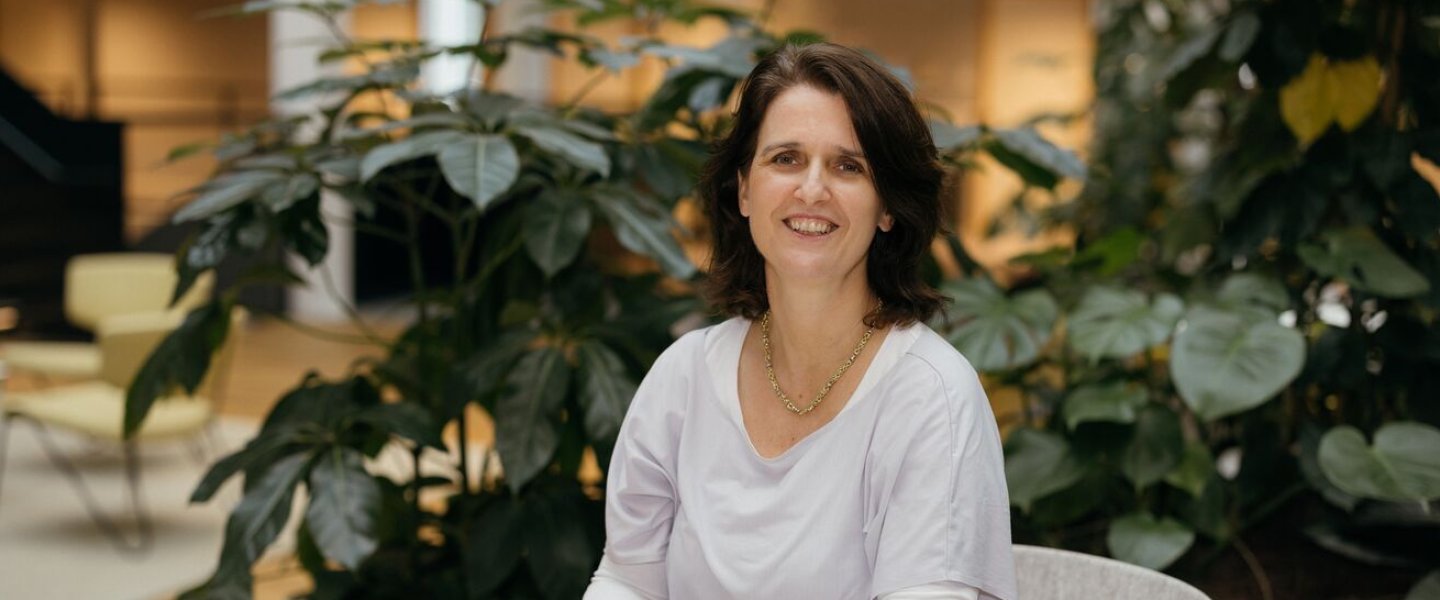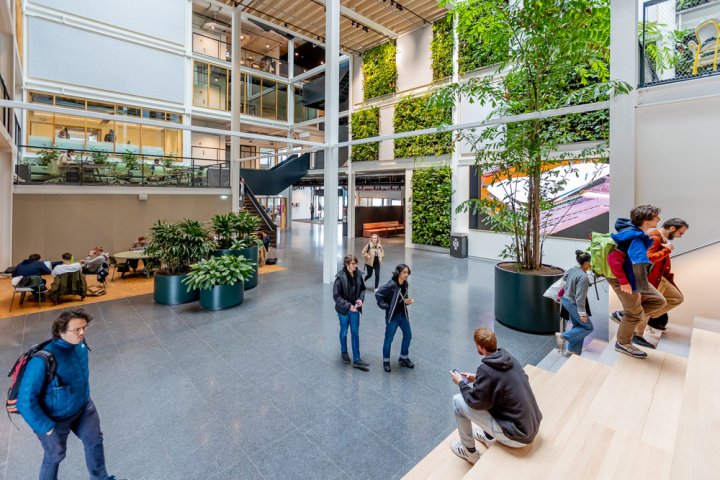
'We really want to attract the best people, both international and national talent'
Paola Grosso has become the new scientific director of the Informatics Institute (IvI) since 1 March. Why did she take on this role and what goals does she have for the institute in the coming period?
Can you tell a bit about your work, background and research?
I am a Computer Scientist. I have always been a researcher, with a passion for an experimental (engineering) approach. My own research area is Computer Networks. I look at how the Internet can be made more secure, efficient, affordable and energy efficient. I research different methods to improve data flows between computers, both within small networks of a few nodes to large networks over long distances and with many machines.
This involves the technical aspects of Computer Science, as well as its direct applications and the interplay between what users and applications need. My research group MNS focuses on distributed Computing Systems, with specific attention to future infrastructures such as Mobile Networks and Quantum Networks. For example, we are looking at future developments in 6G and the services that come with it. We have many national and international collaborations including with partners such as CIENA, SURF, Ericsson and Nokia.
'I see many opportunities and possibilities for our institute. We have grown into the largest institute within the faculty, with an impressive commitment to various topics within society and science.'
Why did you become scientific director of IvI?
I have had the ambition to become a director for some time, partially inspired by seeing others taking on this role. Being director requires one to be both strategic and operational, 'leading' and 'serving' colleagues within the institution and the larger community. I think it is an important and interesting role, and frankly I tend to do things that I enjoy and that allow me to develop myself further. This role appealed to me on several levels. It is a combination of thinking strategically, leading research at a strategic level, and at the same time being operationally engaged to make sure people can work effectively. I see being a director as a kind of sport, a challenging endeavor that demands something of you both mentally and physically. Right now, I feel both mentally and physically strong and have chosen to take on this role.

I see many opportunities and possibilities for our institute. We have grown into the largest institute within the faculty, with an impressive commitment to various topics within society and science. Within IvI, we now have 16 research groups, which fall under five main themes: Artificial Intelligence, Computational Science, Data Science, Systems & Networking and People, Society & Technology. Ivl is known for its innovative approach and scientific progress, both within research and collaborating with industry. Our base in Lab42 is a special place that symbolizes our innovative work environment. I am motivated by the work that is conducted here and the many opportunities that arise from it.
There are of course challenges, especially with the growth of a major institute. You have to think about the organizational structure to operate more effectively and enable colleagues to do their jobs. These are growing pains and daily challenges. In addition, the scientific landscape, especially in Computer Science, is constantly changing. We are not locked inside ourselves, but rather focused on collaborations, interdisciplinary work, both inside and outside the institution. It is a period of change, with new opportunities and ways of working. I am convinced that, as an institute, we are on the right track to address these challenges and opportunities and continue to grow. It gives a pleasant energy to work within an institute that is at the forefront of science and collaboration.
What are your challenges in the coming period?
I want our institute to be an attractive place where people are eager to work. I aim for an institute that is not only growing from a scientific perspective, but also known as 'The Place to Be'. It is my goal to create an enjoyable working environment where talent can flourish and grow. It is not a cliché; we really want to be a magnet for talent and attract the best people, both international and national talent, and ensure that Amsterdam is seen as one of the leaders in our field.